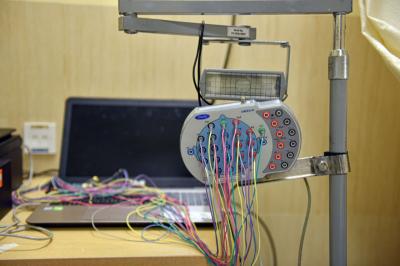The Kafeel Specialized Hospital in Karbala represented by the Ophthalmology Center has made a qualitative shift in the treatment of various eye diseases, after adopting modern and advanced techniques in this field, including the fundus technique and the power of the eye, and it is able to treat various injuries suffered by the eye.
The ophthalmologist at the hospital, Dr. Salam Al-Qar'awi said: "The ophthalmic center in our hospital has all the primary and advanced visual examination techniques required for treating various eye diseases and injuries."
Noting: "The imaging device of the fundus and the inner base of the eye with coloring and without it, is one of the most important devices available in this center, in addition to the apparatus for measuring the nerves of the eye, which is often dependent on the results of nervous system doctors regarding some of their patients."
Al-Qarawi added: "Among the devices available to us is a device for knowing the number of inner layers of the cornea of the eye, and another for examining its topography and the strength of its convexity, in addition to a device for examining the retina and optic nerve."
He continued: "The center also has other devices specializing in measuring eye pressure and the refractive strength of its lens, as well as two other devices for measuring the power of the eye lens as well and the eye examination device with sonar."
For his part, hospital specialist ophthalmologist Sajjad Kazim said: "The ophthalmology center in the hospital is very advanced, and it is one of the best centers in Iraq in this specialty."
He pointed out: "Some of the devices that are available in the center are not present in most specialized ophthalmology centers, even in government and private hospitals."
Pointing out: "The most important modern equipment that the center possesses is the biometric lens measuring device, which is characterized by the ability to measure the power of the lens for patients with retinal detachment, who conducted the operations of the lens and those who have silicon under the lenses of their eyes."
Sajjad explained: "We have an apparatus for eye catheters and we use fluorocin injections for retinal patients. This device is available in very few and limited centers in Iraq, because it is used for special and rare medical conditions."

